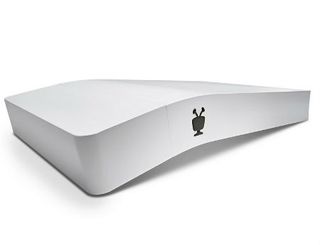Rovi: Retail to Remain ‘Important Channel’ Following TiVo Deal

With Rovi now poised to acquire TiVo, a big question going forward is whether Rovi intends to maintain and perhaps try to expand grow TiVo’s retail business, which features the new 4K-capable TiVo Bolt and its family of Roamio DVRs.
After all, Rovi opted to phase out the Fan TV set-top following its 2014 acquisition of Fanhattan and instead focused on integrating Fan TV’s navigation and discovery software on a wider range of platforms.
Rovi, though, was clear that retail will remain a part of the game plan after it closes the TiVo deal.
“We view this [retail] as a very important channel to be able to maintain focus on,” John Burke, EVP and COO of Rovi, said in an interview. “We think there’s great opportunity there, so we fully expect to continue to leverage that.”
He also said TiVo’s experience in the direct-to-consumer side has also helped the company build better products for its MVPD partners.
TiVo, meanwhile, recent underwent a restructuring that calls for a greater focus on MVPD partnerships and more efficient spending on the retail end. At the time, Naveen Chopra, TiVo’s CFO, interim CEO and SVP of corporate development and strategy, said his company would spend more resources building new classes of products “that go beyond the traditional DVR.”
Today, Chopra said Rovi is the “right” partner for TiVo in part because Rovi “understands the role and the value, strategically and otherwise, of our consumer business….It was important for us to find a partner that could take that forward and do it in a way where we’re combining it with other businesses that bring a lot of scale and a lot of synergies."
Multichannel Newsletter
The smarter way to stay on top of the multichannel video marketplace. Sign up below.
TiVo and Rovi are not yet going into details on how the deal came together, noting that that information will appear in the proxy that will be filed in the coming weeks.
Per The New York Times, the merger was spurred in part by Glenn Welling of Engaged Capital, an activist investor who claimed one of two Rovi board seats about a year ago. At the time, Engaged Capital had been unhappy with Rovi’s financial performance and strategy.
“It’s a deal that made a lot of sense for both parties,” Chopra said. “It almost doesn’t matter how we ended up there [based on] the fact that we've put together a company that, I think, is going to be a very influential player going forward.”
Burke also addressed how Rovi intends to mix and integrate products from both companies, noting that the plan is to offer the market “best of breed” options. Both companies, for instance, make guides for set-tops and mobile devices, offer data analytics products, as well as search and recommendation offerings (TiVo bought Digitalsmiths in 2014, while Rovi, in addition to the Fan TV deal, acquired voice search firm Veveo in 2014).
Burke said Rovi and TiVo are also aligned on their views of the FCC’s proposed set-top rules. TiVo has been a strong advocate of a successor to the CableCARD.
“The path forward is really all about consumers having a bit more flexibility in how they get access to the services that are important to them,” Burke said.
But there will still be some things to clean up.
TiVo, for example, is working with Comcast on a non-CableCARD solution for products sold at retail; Rovi, meanwhile, filed a patent suit against Comcast and some of its box suppliers after the MSO’s license expired and wasn’t renewed.
Earnings update
Capping off a busy morning for Rovi, it also posted Q1 results. Revenues dropped 12%, to $118.4 million, alongside a net loss of $17.7 million, widened from a loss of $15.5 million in the year-ago quarter.
Looking ahead, Rovi still expects fiscal year 2016 revenue of $490 million to $520 million and non-GAAP diluted income per share of between $1.35 to $1.65. Those figures exclude any revenues from possible renewals with Comcast or Dish Network.
